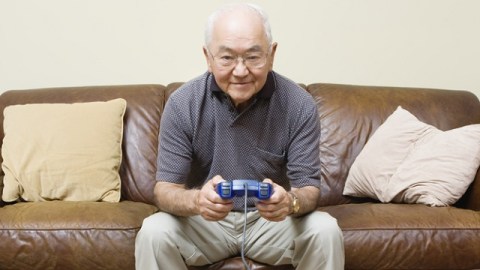More Proof That Elderly People Should Play More Video Games

What’s the Latest Development?
When groups of generally healthy medical patients aged 50 and over were instructed to play a video game that increased in difficulty and complexity with each new level, researchers at the University of Iowa found that they gained years of cognitive processing improvement after one year of play. Those who played at least 10 hours, either at home or in a lab, saw their mental acuity improve by three years, while those who received an additional four hours’ worth of game training experienced four years’ worth of improvement. A paper describing the research appeared Wednesday in the online journal PLOS ONE.
What’s the Big Idea?
It’s generally known that as we age, our brains’ ability to perform certain tasks decreases. The University of Iowa study differed from past research in that it used an additional control group that was given computerized crossword puzzles. Compared to the static nature of crosswords, a game that consistently challenged players’ concentration and speed provided the most dramatic benefits. Lead author Fredric Wolinsky, who has spent years studying the connections between video games and mental acuity, puts it plainly: “Age-related cognitive decline is real, it’s happening, and it starts earlier and then continues steadily. The good news is we can do something about it. The question is will we?”
Photo Credit: Shutterstock.com





